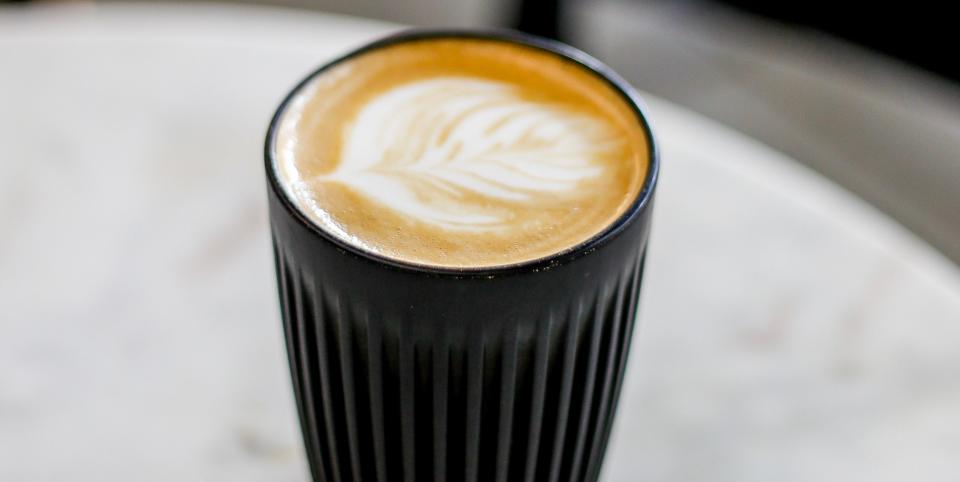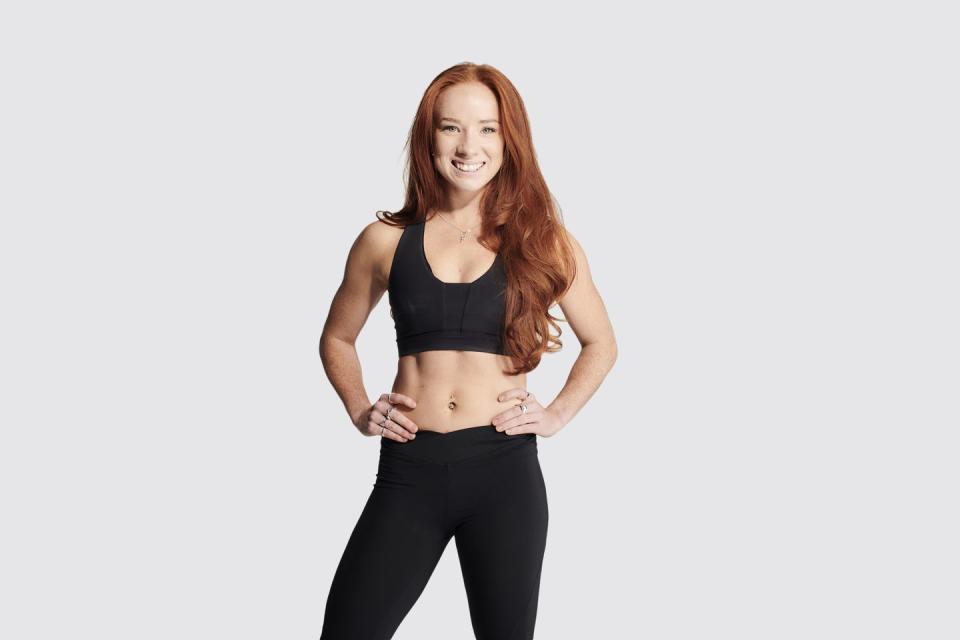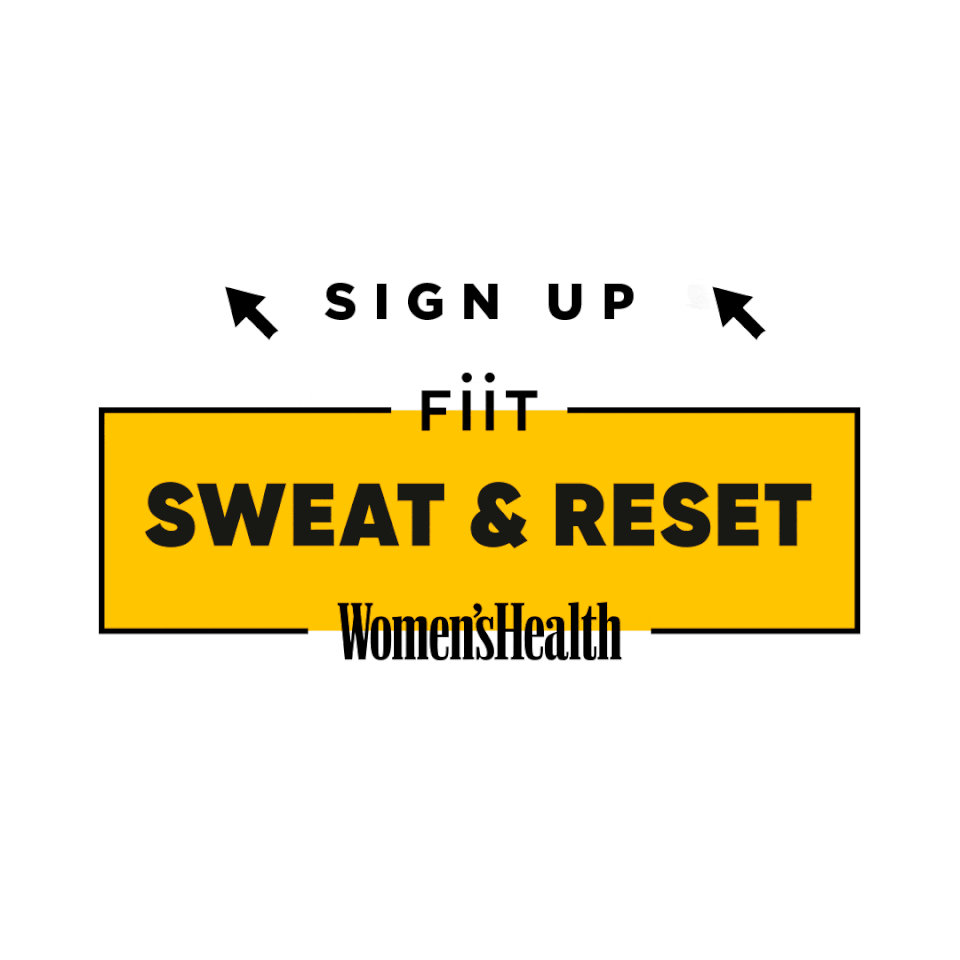Order a coffee before your workout to boost fat loss

In this week's Sweat & Reset training blog for Women's Health, Gede Foster answers your question: is coffee good for fat loss?

Coffee gets a lot of mixed press - but if you are looking at it from a fat loss point of view, it’s good news. Yes, you still have to put the sweat in - it's not a miracle worker - but it can certainly enhance what you get done in the gym.
How does coffee and fat loss work?
You probably know that caffeine, a natural stimulant found in coffee, makes you feel more energised and awake, meaning you will have more energy to exercise when you might otherwise feel tired. It does this by blocking a neurotransmitter called adenosine, which promotes sleep, and increases the release of other feel-good neurotransmitters, like dopamine and norepinephrine.
Not seen the Sweat & Reset plan? We've teamed up with Fiit to bring you a 10-week training plan. Build a stronger, leaner body - get the full details on Sweat & Reset.
What's more, caffeine can reduce your body's perception of pain, so you won't give up on those tougher cardio sessions as easily. More exciting still, is the evidence that it can stimulate the nervous system to send signals to your fat cells to break down, which it does by triggering a spike in the hormone epinephrine.
So for these reasons, drinking coffee around workouts - although perhaps not in the gym, for obvious health and safety reasons - can help improve exercise performance, and therefore fat loss.
But you can't rely on coffee to do all the work - there is no quick fix for getting leaner.
Which coffee is best for weight loss?
To lose weight, or more importantly, fat, you need to be in a calorie deficit. A mocha-chocca-almond-milk-latte can easily top 400 calories - that's the same as a sandwich. When ordering your cup of coffee, be mindful of 'added extras', plus don't assume that just because it's dairy-free it's better for you - some alternative milks have a high sugar content which won't help you in this mission.
Even if you don't count your macros, checking your beverage from time-to-time in a calorie counting app can be useful for understanding the macro-makeup of your hot drinks.
Is too much coffee bad for you?
A November 2017 review published in Food and Chemical Toxicology found that a safe amount of caffeine per day for a healthy adult is around six shots of espresso (400 milligrams).
But, you can have too much of a good thing. Frequent coffee drinkers can become desensitised to its beneficial effects - aside from fat loss coffee has been linked to reducing risk of Type e2 Diabetes; lowering risk of Alzheimer's disease; protecting against against cirrhosis; and easing depression.
If you are reaching for a caffeine hit regularly throughout the day in order to pick yourself up, perhaps you need to look at other ways of energising yourself.
Coffee alternatives
Sleep
Are you getting enough sleep? It may sound simple, but it's such an important pillar of health. It helps with physical recovery, consolidating information from the day, mood regulation and promoting the immune system.
Hydrate
Dehydration has also been linked to fatigue. Water is the elixir of life - it makes up 60 per cent of our body. It helps to regulate your body temperature, lubricate joints, protect the spine and tissues, and is the main mechanism for removing toxins from the body. When you don't get enough of it, your blood pressure drops, your heart rate increases, and the blood flow to your brain slows which can all make you feel tired, and affect cognitive function and performance.
Nutrition
Lastly, no matter what your goal is, you want to make sure you are fuelling your body right by consuming nutritious foods that can support your training schedule.
If you're feeling shattered, try filling up on these high-energy foods.
Not following the Sweat & Reset plan? Sign up to Women's Health's Fiit premium (from £10 a month) and you'll get a full 10-week training plan that includes:
4 classes a week
25 and 40 minute workouts (all levels)
Cardio, strength and mobility training
Bodyweight and dumbbell classes
Stat tracking to monitor your progress
Access to Facebook community

You Might Also Like

